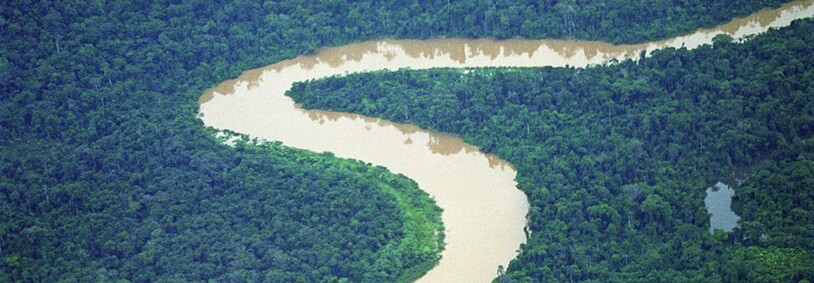
Together we are stronger – joint financing to fight climate change
05.10.2015 – Brazil, Norway and Germany are stepping up their cooperation in implementing the Amazon Fund, which will help preserve tropical forests as a key carbon sink.
Norway and Germany have increased their joint financing of the Amazon Fund by about EUR 5 million to support cooperation on climate change mitigation. The German Federal Ministry for Economic Cooperation and Development (BMZ) and the Norwegian Government signed the agreement with the Brazilian Development Bank (BNDES) during the German-Brazilian intergovernmental consultations with German Chancellor Angela Merkel.
The Amazon Fund is a mechanism for financing projects to mitigate the consequences of climate change. It is based on the UN climate financing model REDD (Reducing Emissions from Deforestation and Forest Degradation). The Fund finances projects aimed at preserving Brazilian tropical forest and protecting it against deforestation. Since it was launched, international and national donors as well as states and businesses have contributed EUR 797 million. In return, the Amazon Fund has issued certificates to them for carbon emissions reductions.
Deforestation accounts for 12% of global greenhouse gas emissions. The target of limiting global warming to two degrees Celsius can only be achieved if forests are protected over the long-term and deforested areas are replanted.
This is also part of the Norwegian and German approaches to climate change mitigation. The two countries are the largest donors to the Amazon Fund. Since 2011, the Deutsche Gesellschaft für Internationale Zusammenarbeit (GIZ) GmbH has been working together with BNDES on financial cooperation and other measures in order to facilitate the effective use of the funds for protecting tropical forests.
Since the beginning of this cooperation initiative, public tenders have been introduced for strategic funding areas, for example to finance sustainable production systems and the sustainable management of indigenous areas. They help the Fund finance projects quickly. The quantity and quality of approved projects have also increased. Among other things, all projects must meet quality criteria for gender equality in order to be approved. Training measures with applicants led to a larger number of high-quality project applications. As a result, the funding volume for small projects of non-governmental organisations to support sustainable production was doubled to EUR 30 million. Overall, the Amazon Fund is currently supporting 74 projects with a total volume of EUR 474 million.
Based on its achievements with project finance and the efficient allocation of funding, the Amazon Fund is seen today as one of the most successful national climate funds worldwide. With more than 450 projects, GIZ is supporting countries in efforts to reduce greenhouse gas emissions and advance climate change mitigation.